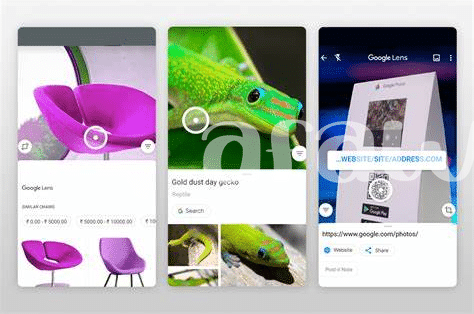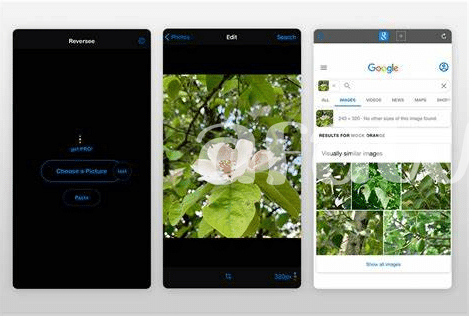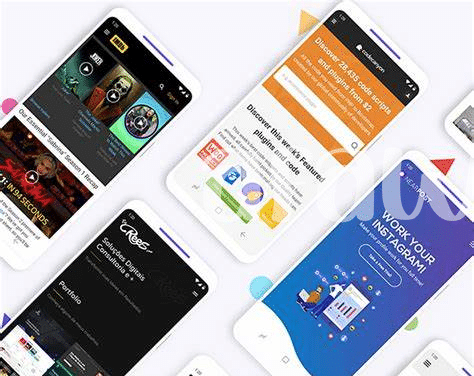
- 📱 Unveiling the Titans: Top Contenders Compared
- 🌟 Aesthetic Meets Functionality: App Interface & Features
- 🚀 Speed and Precision: Performance Benchmarks
- 👥 Social Sharing: Integration and Ease of Use
- 🔒 Privacy Matters: Understanding Data Security
- 💬 User Feedback: What the Community Says
Table of Contents
Toggle📱 Unveiling the Titans: Top Contenders Compared
In the realm of digital imagery, a few powerhouses dominate the landscape of image search applications. Google Images has long been the colossus of convenience, offering a vast index of pictures from every corner of the web. Its closest competitor, Bing Images, entices users with its visually rich results page and the intuitive ‘Image Match’ feature. Meanwhile, platforms like Pinterest and Adobe Stock spice up the game with their curated galleries and design-centric interfaces, ensuring that users are not only searching but also discovering.
Diving into their core, these apps flaunt a range of features designed to cater to the diverse needs of visual hunters. Google Images stands out with its reverse image search, while Bing implements machine learning algorithms to refine search results. Pinterest’s visual search tool allows users to hone in on specific elements within images, and Adobe Stock provides professional-grade images that speak to graphic designers and creatives alike. The battle for supremacy is as much a feast for the eyes as it is a test of utility.
| App Name | Unique Features | Target Audience |
|---|---|---|
| Google Images | Reverse Image Search | General Users |
| Bing Images | Image Match, Learning Algorithms | General Users, Researchers |
| Visual Search Tool, Curated Galleries | Design Enthusiasts, Shoppers | |
| Adobe Stock | High-Quality Professional Images | Graphic Designers, Creatives |
🌟 Aesthetic Meets Functionality: App Interface & Features
Stepping into the realm of image search apps, one finds a world where sleek design waltzes gracefully with cutting-edge technology, crafting experiences that are visually sumptuous and exceptionally practical. Users glide through intuitive interfaces, their fingers brushing past refined icons and menus that materialize with fluid animation — the digital equivalent of a polished concierge ready to cater to whims of visual curiosity. Each feature is a thoughtful addition to this curated toolset; advanced image recognition sweeps users from query to quarry with astonishing alacrity, while filters and editing tools wait patiently at the periphery, ready to refine and redefine the parameters of search. In an era of hyper-connectivity, these apps aren’t isolated islands but social creatures – with a few taps, discoveries are dress up for the social media ball, shared effortlessly across various platforms, connecting users through the universal language of imagery. Indeed, within these virtual galleries, both connoisseurs and casual browsers alike find their visual appetites sated in a fusion of splendor and sophistication. Meanwhile, savvy users on the quest for more specialized apps may find themselves exploring comprehensive lists such as what is the best Reddit app for Android 2024 top 5 apps, showcasing platforms that excel in niche communities and content sharing.
🚀 Speed and Precision: Performance Benchmarks
In the pulsating heart of the digital realm, where images are currency, the race for the fastest and most accurate image search app is a spectacle worth beholding. 🏁 The contenders, armed with algorithms sharp as blades, slice through the clutter to bring you results in milliseconds. It’s a digital ballet, where precision meets the clock, delivering not just any image but the exact visual you seek. The performance benchmarks are a true testament to an app’s prowess, separating the swift from the sluggish. With the tap of a finger, collections of pixels coalesce into meaningful snapshots, thanks to robust back-end engines that are the hidden heroes in this search-and-retrieve marathon. Users demand not just speed but razor-sharp relevance, making these benchmarks critical indicators of an app’s capability to stand as a titan in the fierce arena of image search tools. 🛠️ Indeed, in this race, every millisecond is a step closer to victory in the eyes of the user, making performance benchmarks the ultimate gauge of user satisfaction.
👥 Social Sharing: Integration and Ease of Use
In a world where virtual connections echo the bustle of real-life interactions, the ability of image search apps to seamlessly weave social sharing into their tapestry is paramount. 🗣️🔗 The best apps transcend mere functionality, offering intuitive interfaces that allow users to effortlessly share their visual finds across diverse social networks. An exemplary user journey within these apps might start with a simple image discovery, followed by a tap leading to an array of social platforms – from Instagram stories that dazzle followers with serendipitous finds to Pinterest boards that curate visual inspirations. In addition, bloggers and content creators who muse about the latest digital tools find it a breeze to recommend resources, such as exploring what is the best Reddit app for Android 2024 top 5 apps, embedding their discoveries into discussions with the flair of a maestro. As these apps increasingly anchor into the social ecosystem, the ease with which users can share content shapes the communal tapestry, turning solitary quests into collective adventures. 🌍✨
🔒 Privacy Matters: Understanding Data Security
In the modern quest for the perfect image search app, the allure of sleek designs and swift algorithms often overshadows a crucial component: the vault-like security of personal data. 🛡️ As we swipe through endless galleries, it’s the unspoken pact of trust we enter with developers that truly shapes our digital experience. Amidst an array of features and filters, apps are quietly tasked with the herculean duty of guarding our searches, clicks, and downloads against the prying eyes of cyberspace predators. The best in the business don’t just offer sanctuary for our data—they make transparency the cornerstone of their architecture, showcasing clear policies and user controls that put the power back into our hands. 🕵️♂️ Users seeking a veritable digital fortress should consider the encryption protocols, data retention practices, and the app’s track record for withstanding cyber skirmishes.
| Feature | Description |
|————————|——————————————————————————|
| Encryption | State-of-the-art end-to-end to shield information from unauthorized access. |
| Data Retention Policy | Clear guidelines on how long data is kept and the measures for its disposal. |
| Anonymity Options | Ability to search images without tying actions to your identity. |
| Transparency Report | Regular updates on data requests and privacy breaches. |
| User Control | Tools for users to easily manage their data and privacy settings. |
💬 User Feedback: What the Community Says
When navigating the rich tapestry of image search apps, the chorus of user opinions forms an invaluable guide. 🗣️ Enthusiastic hobbyists and professional designers alike take to forums and review sections to praise intuitive functionalities or critique cumbersome flaws. They shine a spotlight on hidden gems of app design and narrate experiences of seamless searches that turned a mundane quest into a visual feast. 🌐 Tech aficionados dissect algorithms with the same passion as an artist analyzing brushstrokes, discussing the intricacies of search accuracy. Yet, it is the everyday user, often overlooked, whose collective voice truly shapes the narrative. They champion apps that have simplified school projects or fueled their craft with a diverse palette of images. Through likes, stars, and comments, they weave a narrative of satisfaction or call for improvement, reflecting a democratic digital age where the best features are the ones shaped by the people they serve. 🌟 It is here, in the heart of community forums and feedback sections, that the true picture of an app’s worth emerges, painted by the very individuals it aims to serve.




